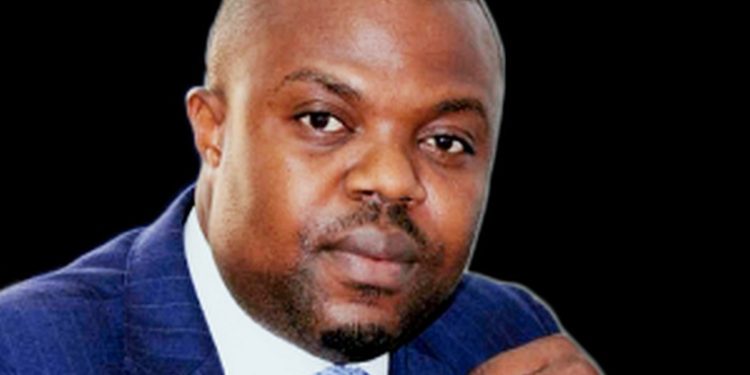By: James Kamara-Manneh
( jkmanneh2020@gmail.com)
In a stark face-off over the integrity and operations of Sierra Leone’s judiciary, the Campaign for Human Rights and Development International (CHRDI) and the judiciary led by Acting Chief Justice Nicholas C. Browne-Marke have presented contrasting narratives that question the impartiality, operational efficiency, and credibility of the country’s justice system. Both sides paint divergent pictures of the inner workings of the judiciary, raising fundamental questions about governance, fairness, and accountability.
CHRDI, an advocacy group with Special Consultative Status to the United Nations Economic and Social Council, has called for urgent government intervention to address pervasive problems within Sierra Leone’s judiciary. According to CHRDI, judiciary employees face mistreatment, harassment, and discrimination, with the organization specifically citing severe delays in salary payments that in some cases extend up to six months. CHRDI suggests that salary delays are a punitive measure against judiciary employees involved in an internal investigation, implying a culture of retaliation.
The organization also highlighted discrepancies in treatment and policy application within the workforce. A newly qualified lawyer, appointed as a court clerk, has allegedly been absent for extended periods while continuing to receive a full salary, reportedly working elsewhere as a practicing attorney. Meanwhile, CHRDI reports that a magistrate has faced salary suspension for failing to report to work, an action CHRDI interprets as unequal enforcement and favoritism within the system.
Furthermore, CHRDI pointed out systemic inefficiencies within the judiciary, especially in terms of a judge shortage that has led to significant case backlogs. The organization claims that some judges are burdened with excessive caseloads while others remain underutilized, a situation exacerbated by “forum shopping”—the selective allocation of cases to favored judges. CHRDI argues that this practice compromises the judiciary’s impartiality and undermines public trust.
Perhaps most troubling, according to CHRDI, is what it describes as pervasive executive interference in judicial matters. It claims that court orders are sometimes ignored, threatening judicial independence and contributing to an erosion of public confidence. CHRDI asserts that these issues can only be resolved through reforms that grant the judiciary financial autonomy, establish stable leadership, and prioritize professional development. Such reforms, CHRDI argues, are essential for preserving the judiciary’s role as an independent safeguard of citizens’ rights and civil liberties.
The judiciary has strongly refuted CHRDI’s allegations, calling them unfounded and “self-serving” attempts to discredit the institution. In a recent statement, Acting Chief Justice Browne-Marke emphasized the judiciary’s unwavering commitment to independence, impartiality, and accountability, values enshrined in the Sierra Leone Constitution. In a direct response to CHRDI’s allegations, the judiciary underscored its recent initiatives to address systemic challenges, particularly case backlogs and staffing inefficiencies, which it claims are intended to enhance administrative efficiency.
Justice Browne-Marke’s leadership, according to the judiciary, has focused on scheduled staff transfers for 2024 and tackling the issues surrounding the reassignment of case files—both intended to ensure a timely and transparent administration of justice. The judiciary asserted that it applies disciplinary action as a standard measure against any staff conduct inconsistent with institutional values, insisting that this is a practice commonly upheld in public institutions. Moreover, the judiciary dismissed the accusation of favoritism, maintaining that personnel who refuse assignments at designated stations are dealt with impartially.
The judiciary went further, suggesting that certain “ill-motivated citizens” might be driving a campaign to tarnish its reputation. It implied that reforms limiting inappropriate influence within the judicial system have dismayed individuals who once benefitted from such influence, potentially motivating them to criticize current practices. In a rare public rebuttal, officials challenged CHRDI’s methods, recommending that the organization engage directly with judicial authorities rather than publishing “unfounded” claims, which, according to the judiciary, undermine its mission.
Finally, the judiciary reassured Sierra Leoneans of its “unwavering commitment” to fairness and transparency, calling for public confidence in its dedication to impartial justice. Officials expressed hope that civil society organizations like CHRDI would adopt more “responsible advocacy,” promoting constructive dialogue instead of what they described as “misleading attacks.”
The contrasting perspectives presented by CHRDI and the judiciary highlight a critical debate regarding the state of Sierra Leone’s judicial system. CHRDI’s assertions underscore the urgency for systemic reform, particularly regarding financial independence, improved working conditions, and measures to curb executive interference. According to CHRDI, these reforms are crucial to restore faith in the judiciary, ensure fair treatment of judicial employees, and uphold justice for the citizenry. By shining a light on issues like delayed payments, salary discrepancies, and case backlogs, CHRDI advocates for a justice system that is not only efficient but equitable.
On the other hand, the judiciary’s firm rejection of these allegations raises questions about CHRDI’s motivations and the accuracy of its claims. Justice Browne-Marke’s response suggests that efforts are already underway to address longstanding administrative challenges, including staff rotations and backlog reduction, reinforcing the judiciary’s commitment to its constitutional duties. The judiciary’s criticisms of CHRDI’s methods, particularly the call for direct engagement over public accusations, reflect an institutional desire for accountability in how advocacy groups present and pursue reform agendas.
Ultimately, the debate between CHRDI and the judiciary underscores the broader challenges facing Sierra Leone’s justice system. CHRDI’s call for financial autonomy and reforms may resonate with citizens concerned about fairness and judicial independence, while the judiciary’s emphasis on procedural accountability and administrative improvements signals its readiness to confront inefficiencies.
The opposing perspectives raise significant concerns about Sierra Leone’s judicial system, inviting a broader conversation on reform, integrity, and transparency. Whether CHRDI’s assertions will lead to governmental intervention or reforms remains uncertain. What is clear, however, is that both parties recognize the need to uphold the judiciary’s independence and accountability.
As Sierra Leone’s citizens await further developments, the discourse surrounding CHRDI’s allegations and the judiciary’s rebuttal represents an essential check on power, illustrating the challenges and opportunities of democratic governance in strengthening Sierra Leone’s judicial framework.











